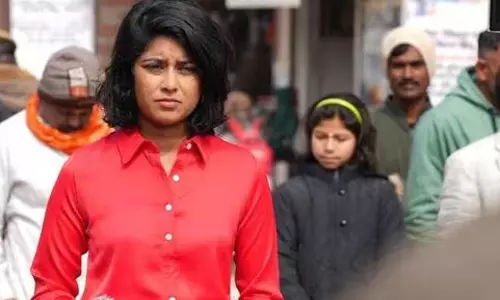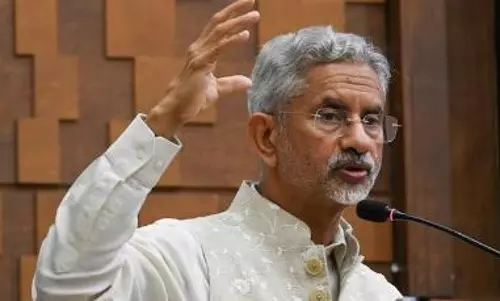
Doctors' stir: Right demand, wrong strike
text_fieldsThe death of 75-year old Mohammad Sayeed in NRS Medical College, Kolkatta, and the clashes following it, have burgeoned into a nation-wide strike. The unexpected and complex imbroglio developed after a group of Sayeed's relatives and friends attacked the staff on duty, alleging that the cause of the death was the neglicence of doctors.
An issue that should have been solved through a mature political approach and in a legal manner, however, veered into different paths in West Bengal. And the central government, as if grabbing an opportunity to put a political end to Mamata, is trying to use it as such. The defiance and obstinancy, represented by chief minister Mamata's ultimatum that ruled out all talks, turned the entire doctor community anti-government. Worst of all, the statement regarding the caste and religious prejudices among Bengal's doctors, only vitiated the issue further.
That led to the resignation of over 500 doctors and declaration of solidarity and strike by their fraternity across the country. Although Mamata Banerjee has finally expressed willingness for unconditional talks, attempts for solution have yet to gain momentum. Even as the Joint Junior Doctors' Forum has offered to attend talks, Indian Medical Association (IMA) national general secretary has called for a full protest strike except emergency service, expressing support to the Bengal stir and demanding security for doctors. There is an ill-concealed political agenda behind the intervention by central health minister and the state governor that helped the strike suddenly spreading all over the country. When IMA, that had not come forward in support of Dr Kafeel Khan when he was hounded in the name of children's death in Gorakhpur Medical College, and Dr Payal Tadvi who committed suicide owing to casteist torture in Mumbai, shows an overenthusiasm in this strike, it does not take much intelligence to read into its motive.
Any one who observes the public health sector knows that junior doctors in government hospitals are forced to work 16 to 17 hours a day without break and struggle even to meet their private needs.. Although the patients or their relatives are not bothered about the physical and mental stress such doctors experience, what drives most of them to venture on to the field is their fascination for the medical profession. Consequently, due to the paucity of basic amenities, the excess of mostly poor and uneducated patients, and sometimes the neglilgence of doctors, confrontations become common in government hospitals. A study conducted by IMA in 2017 says that 75 per cent of doctors are made to face attacks in their work place; 32 per cent of clashes in hospitals happen in the casualty department, and 22 per cent in wards. And the brunt of the attacks is borne by nurses. The report also explains that the main trigger for the clashes is the impatience of patients' relatives over delay in getting medical attention and treatment.
The most unfortunate fact is that 91 per cent of cases of attacks on hospitals end up without any follow-up action. When four percent of cases are wound up with verbal warnings, only in two percent of cases is FIR registered and legal steps initiated. In medical colleges which operate in the thin line between life and death, emotional skirmishes are likely any time, and therefore ensuring adequate security in such places should get top priority. Although Clinical Establishments Act contains provisions related to security, in actual experience they do not help the doctors' security. Therefore, the central government should urgently take the initiative to make legislation that solves the inadequacies in existing laws and ensures the security of doctors.
Even as doctors' demands remain valid, strikes that throw the health care mechanisms of the government sector out of gear are not only undesirable, but also invite popular disapproval and protests. The stir that started in Bengal has brought the entire health sector of the state to a halt for nearly a week. As the strike turns nation-wide, the misery will be on the poor and rural patient population who cannot afford treatment in private hospitals. Thus, a strike that holds the life of the poor to ransom, for all the pretexts raised, will have no justification. Especially so, when hidden political agenda exist that caused the strike to turn nation-wide at such a fast pace.

















